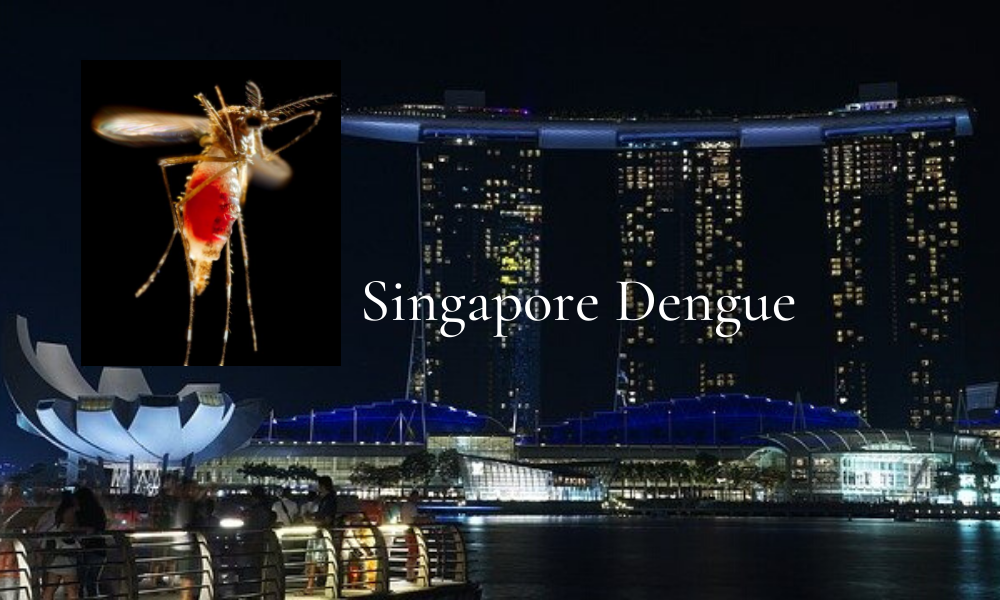By NewsDesk @infectiousdiseasenews
The number of dengue fever cases in Singapore has reached 22,403 through Tuesday, eclipsing the former record of 22,170 seen in 2013. Twenty deaths have been recorded.
1,380 dengue cases were reported in the week ending 1 Aug 2020. This is the eighth consecutive week in which the weekly number of reported dengue cases has exceeded 1,000.

The Singapore NEA is working with all Town Councils to step up dengue prevention efforts in an intensive two-week islandwide exercise, all residents, especially those living in dengue clusters areas, should do the three protective actions listed below, to protect themselves and their loved one against dengue.
Protective actions against dengue: ‘Spray, Apply, Wear’ or S.A.W in short
1. Spray insecticide in dark corners around the house
2. Apply insect repellent regularly
3. Wear long long-sleeve tops and long pants
Since 15 July 2020, enhanced penalties have been imposed on households, construction sites and Town Councils found to be breeding mosquitoes, to help better safeguard public health and protect every individual in the community. Heavier penalties have been imposed on households with the following offences:
• Repeated mosquito breeding offences;
• Multiple mosquito breeding habitats detected in a single inspection; and
• Mosquito breeding detected after having received a legal notice from NEA.
Enforcement for Town Councils will be tightened for mosquito breeding found in common mosquito breeding habitats, like drains and scupper or gully traps, and fines will be raised for mosquito breeding at construction sites.
The number of active dengue clusters reported continues to remain high. As of 4 Aug 2020, there are 391 active dengue clusters reported, where intensive dengue transmission is ongoing.
Those showing symptoms suggestive of dengue should see a medical practitioner early, to be diagnosed and managed accordingly. Early diagnosis can facilitate better case management, and persons with dengue can also help prevent further transmission by applying repellent regularly, so that mosquitoes do not bite them and pick up the virus from them. The symptoms suggestive of dengue include:
• Sudden onset of fever for two to seven days;
• Severe headache with retro-orbital (behind the eye) pain;
• Joint and muscle pain;
• Skin rashes;
• Nausea and vomiting;
• Bleeding from the nose or gums;
• Easy bruising of the skin;
All stakeholders, including residents, contractors, and business owners, are urged to do their part in preventing dengue.
- Miami: Two additional West Nile virus cases reported
- COVID-19 treatment: NIH study aims to determine safety and efficacy of experimental monoclonal antibodies
- Malaria: Artemisinin resistant strain reported in Rwanda
- Dengue fever in the Florida Keys: 4 more local cases identified
- Bacterial vaginosis is triggered by BV-related bacteria present in some men’s penile microbiome: Study
- Salmonella outbreak: Oregon reports scores of cases
- Massachusetts reports 1st human Eastern Equine Encephalitis case of 2020


One thought on “Dengue fever record set in Singapore”